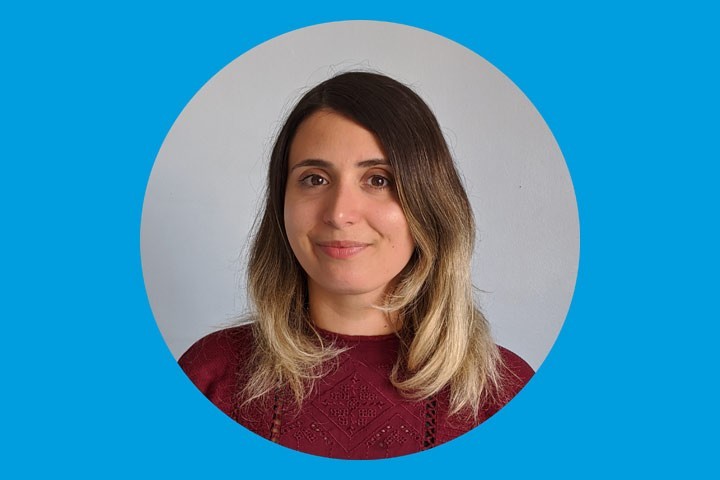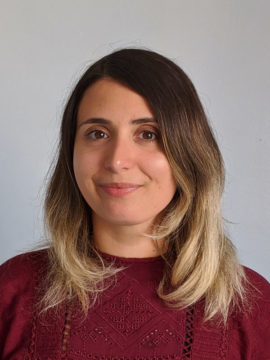
Interview: Maddalena Balia
 Arne Battefeld’s team (“Pathophysiology of neuron-oligodendrocyte interactions“) was created in 2018 with a Junior Team Leader chair of the Neurocampus program funded by the Région Nouvelle-Aquitaine. We met the newcomer of the team, Maddalena Balia.
Arne Battefeld’s team (“Pathophysiology of neuron-oligodendrocyte interactions“) was created in 2018 with a Junior Team Leader chair of the Neurocampus program funded by the Région Nouvelle-Aquitaine. We met the newcomer of the team, Maddalena Balia.
You had a postdoc position in London. What made you come to Bordeaux and join Arne Battefeld’s team?
Following my thesis on interneurons – oligodendrocytes precursors cells synapses, I was recommended to focus on neurons, and I had that opportunity in Beatriz Rico’s lab at King’s College London. She proposed to contribute to a work (project?) on interneuron connectivity. By combining our respective expertise, we then developed a project on interneuron myelination. I learnt a lot during these three postdoc years, but I definitely realised that my scientific interest lies in neuron-glia interactions. Whilst I was looking for a lab to pursue this interest, I found out about the postdoc project offered by Arne Battefeld. I was immediately interested, because not only do we share the same research interest, but we also gravitate around neuro-glia interaction, with complementary competences. This all indicates a fruitful collaboration.
What are the challenges of this team ?
Oligodendrocytes are glial cells that produce the myelin sheath which enwraps axons. This sheath aims to protect and support the proper function of neuronal activity. In some neurodegenerative diseases like multiple sclerosis, dysfunction or loss of oligodendrocytes severely impacts the nervous system. Therefore, it is essential to understand the physiology of this cell type and how it interacts with its environment. Arne Battefeld’s lab is focused on the interaction between oligodendrocytes and neurons. We aim to decipher how neuronal physiology affects oligodendrocytes and vice versa.
Could your tell about your studies to the students who read us?
I had a rather unusual start because after a literary baccalaureate, I did a one-year scientific refresher course at the University of Paris 11 in Orsay, the “Préparation Au Cursus Scientique année 0” (PSC0). I would like to highlight that the PCS0 was a wonderful opportunity for me and that it prepares one very well for universitary studies. After that, I acquired a bachelor’s degree in biology and a master’s degree in neuroscience, still at Paris 11. There I developed my love for neurophysiology and glial cells, which motivated my Master 2 internship, and then my PhD thesis in the laboratory of Maria Cecilia Angulo at Paris Descartes University. I pursued a first postdoc in the laboratory of Beatriz Rico at at King’s College London, and now a second one in Arne Battefeld’s lab.
So your M2 internship definitively oriented you towards neuroscience?
Yes, even though I was beginning to be oriented with my neuroscience classes during my bachelor and master degrees, organized by Micaela Galante and Hervé Daniel. During the summer between L3 and M1, I did an internship in their laboratory, where I really discovered electrophysiology, glial cells and their interactions with neurons. But the person who most shaped me as a neurobiologist is my PhD supervisor, Maria Cecilia Angulo, who is a role model for me as a researcher.
Interview by Nathan Florent
More details…
Last update 02/07/20
